Los Angeles, July 16 – A&E Network’s critically acclaimed award-winning original docuseries Born This Way keeps adding up honors, with four more Emmy nominations this year, bringing the total to 13 nominations and three wins including the Emmy for Outstanding Unstructured Reality Series in 2016, and for Casting for a Reality Program and Cinematography for a Reality Program in 2017.
Produced by Bunim/Murray Productions, Born This Way, an unscripted reality show, follows a group of seven young adults with Down syndrome along with their family and friends in Southern California. Because its focus is on showing their everyday lives, including employment, efforts for independent housing, loves and more, Born this Way breaks down stigmas surrounding disability.
This year, Born This Way is nominated once again for Outstanding Unstructured Reality Program, Outstanding Casting for a Reality Program and Outstanding Cinematography for a Reality Program, as well as Outstanding Picture Editing for an Unstructured Reality Program.
A Focus on Diverse Casting
Show creator Jonathan Murray, the innovator behind the first-ever reality-show, The Real World, and many other hit shows including Keeping Up with the Kardashians, said the cast members of Born This Way remind all of us that, “every individual has something to contribute.”
“In thinking about the show, we wanted to focus on the ability within the disability and I think that is what is exciting to see,” said Murray. “We also are very proud of the fact that our cast is very diverse. Born This Way has a cast that includes people who are African American, Hispanic and Asian. This is a breakthrough for those minority communities as well.”
The inclusion of John Tucker who is African American, Elena Ashmore whose mother is from Japan and whose storyline includes the immigrant experience and Cristina Sanz who is a Hispanic woman is important for several reasons. One is that when disability is depicted in pop culture, it tends to be all white. Real story telling requires exploring people with multiple minority status (i.e. African American + disability). Secondly, far too many African Americans and Hispanics/Latinos in America who have a developmental disability are not receiving the diagnosis, school accommodations and high expectations they need to succeed. Today only 65 percent of students with disabilities graduate high school and only seven percent complete college. In addition, there are 750,000 people with disabilities behind bars in America – and the majority of them are people of color.
“What I would like to see is that more shows have a diversity to them where the diversity is not the point of the show,” Murray added. “I’d like to get beyond the labels to accurately reflect what is going on in our country today.”
Last year was the first time the Television Academy presented an award for Casting for a Reality Program, which Sasha Alpert and Megan Sleeper won for Born This Way.
“Everyone experiences powerful stories,” Alpert said. “By not including a diverse group of people, we are limiting our ability to tell compelling stories. If we make television that doesn’t embrace the various populations around us, we limit the narratives we tell.”
RespectAbility, a nonprofit organization fighting stigmas and advancing opportunities for people with disabilities, has been honored to consult during the creation of Born This Way and congratulates the entire team for its hard work in achieving this continued recognition.
Jennifer Laszlo Mizrahi, RespectAbility’s president who herself has a disability, and who knows what it means to raise a child with multiple disabilities, said: “I am thrilled that the Emmy’s see the value in showing real people with disabilities and their powerful lives on TV. For generations TV-viewers saw people with disabilities through the lens of the Jerry Lewis telethon. Though it was well intended, it showed people’s inabilities and used a lens of pity. Born This Way is empowering and uplifting. It shows, as one member of the cast frequently says, that the public should not ‘Limit me.’”
Increasing Disability Inclusion in Television
Disability often is absent from mainstream film and television — both the depiction of it, and even when a character has a disability, the actor often does not. According to the 2017 Gay & Lesbian Alliance Against Defamation (GLAAD) report Where We Are on TV, the number of regular primetime broadcast characters who have a disability is at 1.8 percent, representing only a fraction of the one-in-five individuals who has a disability in the world today. Moreover the Ruderman White Paper on Disability in Television report found that an actor without a disability plays more than 95 percent of characters with disabilities. Furthermore, a recent report by The Media, Diversity, & Social Change (MDSC) Initiative at USC’s Annenberg School for Communication and Journalism found that only 2.7 percent of all speaking or named characters in film were shown to have a disability in 2016 (up from 2.4 percent in 2015). None of the leading characters were from an underrepresented racial/ethnic group or the LGBT community.
Ashmore, Tucker, Sanz and the other cast members, along with their families, are models of how disability can and should be accepted and addressed in minority communities. They are not alone as there are many role models who are African American, Hispanic/Latino or another minority with a disability. But the lack of self-representation points to a systemic problem of ableism—discrimination against people with disabilities—in the television industry. It also points to a pervasive stigma among audience members against people with disabilities given that there is no widespread outcry against this practice.
“A&E’s Born This Way continues to break the glass ceiling for people with disabilities of all backgrounds,” Mizrahi added. “Programs like Born This Way that feature people with disabilities, or that tackle disability issues in a positive light, can be successful both critically and financially. Audiences want to see strong, capable role models with disabilities. By focusing on showing these young individuals’ everyday life choices regarding employment, living independently and dating, Born this Way breaks down stigmas surrounding disability.”
Murray agrees that shows like Born This Way and more diversity in Hollywood are good business.
“Hollywood has been really, really slow to recognize the diversity of this country,” he said. “I think it is catching up fast now. And I think it’s realizing that diversity is good business. I don’t think it’s necessarily because it is altruistic. I think they are recognizing that TV shows will do better if they reflect what the country is.”
During its first season, Born This Way grew across all demographics each episode, with adults 25-54 up 84 percent, adults 18-49 up 64 percent and total viewership up 67 percent by the end of the season.
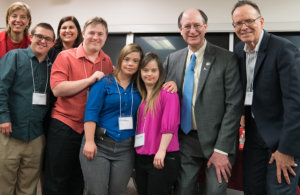
RespectAbility President Jennifer Laszlo Mizrahi, Born This Way Cast Member Sean McElwee, RespectAbility Communications Director Lauren Appelbaum, Born This Way Cast Members Steven Clark, Cristina Sanz and Megan Bomgaars, Rep. Brad Sherman, Born This Way Executive Producer and RespectAbility Board Member Jonathan Murray talking about employment opportunities for people with disabilities
According to the U.S. Census, one in five Americans has a disability. Currently 70 percent of working-age people with disabilities are not working — even though most of them want jobs and independence. The numbers are even worse for people with Down syndrome. According to the National Down Syndrome Society, there are more than 400,000 people with Down syndrome. Many studies show people with disabilities, including those with Down syndrome, can work successfully and live relatively independently. The individuals on Born this Way prove this since several are productive employees and several are business owners as well.
Since the premiere of Born This Way, there has been good news on the employment front. There were four times as many new jobs for people with disabilities created in the U.S. in 2016 versus 2015. 343,483 new jobs were filled by people with disabilities.
As Sandra McElwee, mother of cast member Sean, wrote, “If that’s not proof of stigmas and prejudices being removed, I don’t know what is. I can’t wait to see what the 2017 and 2018 numbers reveal.”
Born This Way will be returning for its fourth season featuring eight brand-new episodes on Wednesday, Aug. 15 at the new time of 8:00 p.m. Each week will include two episodes airing back-to-back with a focus on the journey leading to the wedding of Cristina and Angel. In addition, Rachel and Megan explore independent living options while John and Steven work toward getting their driver’s licenses. Both Elena and Sean have new relationships. In the new season, the group “looks to push their boundaries even further,” said A&E, “and assert the independence they have cultivated over the past three seasons.”


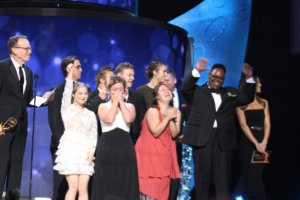
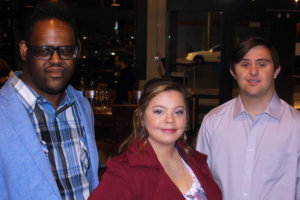
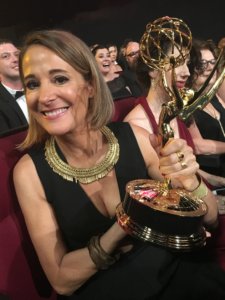
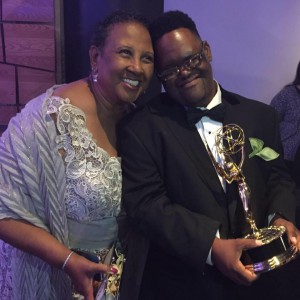
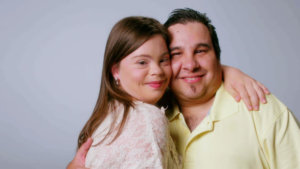
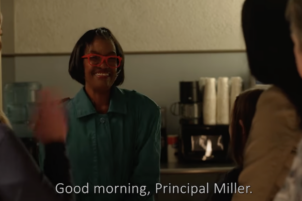
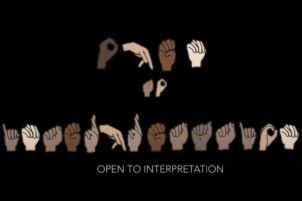





Love this show! Really wish the video at the end of the article was captioned, though.